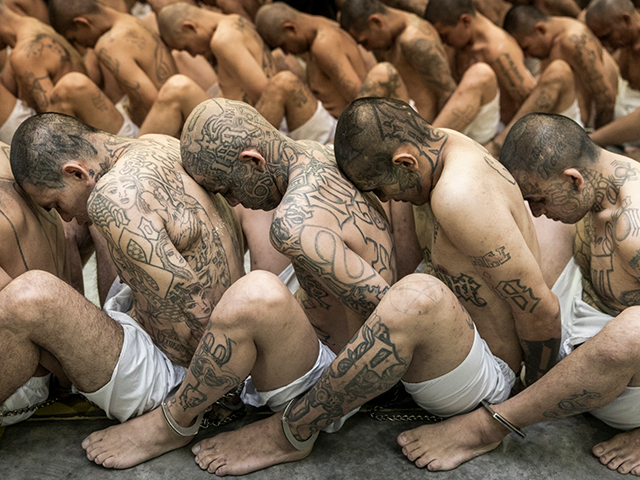The mayor of Medellín, Colombia, Daniel Quintero Calle, announced this weekend that the city’s council has approved the budget to build a new metropolitan jail in the same style as the one built by Salvadoran President Nayib Bukele and recently inaugurated in February.
“We have achieved the approval of what will be the district jail for inmates in Medellín, a space of 300,000 square meters — 56,000 square meters of construction — for more than 1,400 inmates,” Quintero Calle said during the official announcement on Friday.
Así será la nueva Cárcel Metropolitana. pic.twitter.com/f3gKKsY8rv
— Daniel Quintero Calle (@QuinteroCalle) March 17, 2023
The Colombian mayor added that the inmate center will boast ‘six surveillance towers, state-of-the-art technology, and artificial intelligence, where we will be able to see all the prisoners’ permanent movements all the time.”
Quintero Calle’s plans to build a new prison center for Medellín are a defiant move against the plans of Colombia’s radical leftist President Gustavo Petro, whose justice minister announced last year that Petro’s government will not spend a single Colombian peso building new inmate centers in the country — despite the country facing overpopulation issues in its prison system.
According to Colombia’s National Penitentiary and Prison Institute (INPEC), the nation’s prison centers faced an overpopulation rate totaling 20 percent by June 2022. The prisons housed an inmate population of 97,425 distributed across an installed inmate capacity of 81,175.
In police stations, the overpopulation rates are much worse. By February, police stations in the city of Cali faced overpopulation rates of almost 1,950 percent.
The planned prison, which Quintero Calle asserted will be the “the most secure prison in the country,” will be built in the San Cristóbal subdivision of Medellín. Construction is expected to begin in 2024 once the facility’s designs are completed and to last until 2026.
“With this we achieve a double effect: dignity, but also capacity, because the capacity in the city of Medellín is full,” Quintero Calle explained. “We are over 270 percent overcrowded, and that means we need prisons.”
During his speech, the Colombian mayor compared the situation of Medellín’s prisons with that of El Salvador under Nayib Bukele, arguing that prison overpopulation is inmate abuse.
“One sometimes sees Bukele’s jails and people say ‘look how they treat the prisoners there.’ Do you want to see mistreated prisoners? Go to the police stations in Medellín,” he stated.
In February, the Salvadoran president inaugurated a new 40,000-bed “mega-prison” called the Center for the Confinement of Terrorism (CECOT) as part of his government’s fierce crackdown on gang violence. The prison’s first 2,000 inmates were transferred in February; a second batch of 2,000 more inmates are scheduled to be transferred last week.
In contrast to Bukele, Petro, a former member of the Marxist M9 guerilla, has opted to enact a plan known as “total peace,” which largely focuses on negotiating with criminal organizations, education, and social rehabilitation.
Petro’s plans also include a reform of Colombia’s justice system that seeks to “humanize” the nation’s prison system, apply “restorative justice,” expedite the granting of judicial benefits, and adjust maximum prison sentences.
Petro has advocated for releasing inmates and granting them monetary stipends if they agree to cooperate with the government’s peace plans. In December, Petro’s administration released criminals arrested for their participation in the violent leftist riots in Colombia during 2021, granting them a monetary stipend worth roughly $200 on the condition that they agree to become a “spokesperson for peace.”
The Colombian far-left has been a public critic of Bukele’s plans to crack down on El Salvador’s gang violence. Petro compared El Salvador’s CECOT prison this month to a “concentration camp,” which sparked a brief feud between both presidents. The Colombian government has not publicly commented on Quintero Calle’s plans at press time.
Christian K. Caruzo is a Venezuelan writer and documents life under socialism. You can follow him on Twitter here.

COMMENTS
Please let us know if you're having issues with commenting.